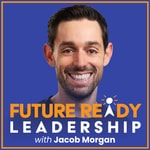Investing in Impact | Impact Investing – Details, episodes & analysis
Podcast details
Technical and general information from the podcast's RSS feed.

Investing in Impact | Impact Investing
Causeartist
Frequency: 1 episode/16d. Total Eps: 114

Recent rankings
Latest chart positions across Apple Podcasts and Spotify rankings.
Apple Podcasts
🇫🇷 France - investing
08/06/2025#98🇫🇷 France - investing
23/10/2024#98
Spotify
No recent rankings available
Shared links between episodes and podcasts
Links found in episode descriptions and other podcasts that share them.
See all- https://causeartist.com/
430 shares
- https://www.impactinvestor.io/
210 shares
- https://transistor.fm/?via=grant
203 shares
- https://twitter.com/brian_armstrong
29 shares
- https://twitter.com/angjack
3 shares
RSS feed quality and score
Technical evaluation of the podcast's RSS feed quality and structure.
See allScore global : 48%
Publication history
Monthly episode publishing history over the past years.
Cole Shephard, Partner at Legacy Group - Alternative Asset Manager Focused on High-Impact Investment Opportunities in Latin America
Episode 80
mardi 15 octobre 2024 • Duration 49:22
This content is for informational and entertainment purposes only, you should not construe any such information or other material as legal, tax, investment, financial, or other advice.
----------------------------------------
In episode 80 the Investing in Impact podcast, I speak with Cole Shephard, founder of Legacy Group, on his mission to become a leading coffee producer in Colombia while maintaining a focus on sustainability and social impact.
About Cole Shephard
Cole is a Partner at Legacy Group, an alternative asset manager focused on high-impact investment opportunities in the U.S. and Latin America.
Founded in 2015, Legacy Group aims to bridge the gap between financial capital and ventures with significant social and environmental impact across various sectors, including real estate, agriculture, and technology.
Before founding Legacy Group, Cole spent eight years with Pricewaterhouse Coopers, working across the U.S., Bermuda, Hong Kong, and Beijing. His expertise spans accounting, advisory, and consulting, with a focus on mergers and acquisitions in industries like financial services, real estate, and healthcare.
In this episode, Cole shares valuable insights on building business models that integrate environmental and social initiatives, emphasizes the importance of adaptability for aspiring entrepreneurs, and outlines the ambitious future goals for the Green Coffee Company.
Key Takeaways from the Interview:
- Green Coffee Company is Colombia's largest coffee producer.
- The company focuses on sustainability and social impact.
- Building a business for the long term is crucial.
- Education and talent development are key to success.
- Entrepreneurship involves facing numerous challenges.
- Aspiring entrepreneurs should learn from experiences.
- Identifying strengths and weaknesses is essential.
- Future goals include becoming a public company.
- The company aims for nationwide expansion in Colombia.
- Building a community around the business is important.
----------------------------------------
Thrive in the Impact Economy.
Join 20k+. Subscribe to our weekly newsletter for the latest news, exclusive interviews, and curated products that drive the Impact Economy. Our mission is to highlight and celebrate the founders, creators, investors, and conscious brands shaping the future of conscious business and philanthropy.
To learn more, please visit causeartist.com
Venture Capital For Equitable Supply Chains - Ed Marcum // Managing Partner of the Working Capital Fund
Episode 79
mercredi 2 octobre 2024 • Duration 37:40
This content is for informational and entertainment purposes only, you should not construe any such information or other material as legal, tax, investment, financial, or other advice.
----------------------------------------
In episode 79 the Investing in Impact podcast, I speak with Ed Marcum, the Managing Partner of the Working Capital Fund, on the innovations creating a more transparent and responsible global supply chain.
With over 20 years of experience in human rights and venture capital investing, Ed has worked across the for-profit, nonprofit, and public policy sectors.
Previously, he spent more than a decade at Humanity United, guiding initiatives to address forced labor in corporate supply chains.
He holds a bachelor’s degree from the University of California, Berkeley, and an MBA/MA from The Wharton School and the Lauder Institute at the University of Pennsylvania.
About the Working Capital Fund
The Working Capital Fund is on a mission to improve the lives of marginalized workers, catalyzing economic justice by investing in innovative solutions that address the deep-seated challenges of global supply chains.
Global supply chains are enormous, involving millions of workers across thousands of businesses. On average, a Fortune 500 company works with over 10,000 suppliers, producing the goods that consumers rely on daily.
However, these supply chains are often associated with some of the most pressing challenges humanity faces, including forced labor, unfair wages, and environmental degradation.
Annually, over $354 billion worth of goods are at risk of being tainted by forced labor, with more than 17 million workers trapped in modern slavery conditions.
These challenges are often hidden deep within supply chains, making them difficult to detect and resolve. Moreover, supply chains are a primary contributor to greenhouse gas emissions, exacerbating the climate crisis.
How the Working Capital Fund Works to Create Impact
The Working Capital Fund focuses on investing in technologies and solutions that address the injustices inherent in global supply chains.
Through its strategic investments, it aims to create a positive impact on workers and the environment. Key areas of focus include:
1. AI-Enabled Transparency Tools
One of the biggest challenges in addressing supply chain issues is the lack of transparency. Corporations often do not have visibility into the practices of their suppliers, making it difficult to identify labor violations or environmental concerns.
By investing in AI-enabled transparency tools, the Working Capital Fund is empowering companies to map their entire supply chains and assess risks in real time.
These tools offer a clear view of potential human rights abuses or environmental risks, helping businesses make more informed decisions about their suppliers.
2. Worker-Voice Solutions
Empowering workers is a critical part of creating a fair and just supply chain. The Working Capital Fund invests in worker-voice solutions that give laborers the tools they need to hold their employers accountable.
These solutions allow workers to anonymously report unsafe working conditions, wage theft, or other violations, providing valuable feedback to companies and regulators.
With this data, stakeholders can take action to improve labor conditions and ensure that workers’ rights are respected.
3. Financial Technology for Fair Pay
Ensuring fair wages for workers is another priority for the Working Capital Fund.
By investing in financial technologies, the Fund is helping to create systems that ensure workers are paid promptly and fairly.
These technologies also help gather sustainability data on upstream suppliers, providing insights into whether they are adhering to ethical labor practices.
With this information, companies can work towards ensuring that their entire supply chain is both economically and socially responsible.
----------------------------------------
Thrive in the Impact Economy.
Join 20k+. Subscribe to our weekly newsletter for the latest news, exclusive interviews, and curated products that drive the Impact Economy. Our mission is to highlight and celebrate the founders, creators, investors, and conscious brands shaping the future of conscious business and philanthropy.
To learn more, please visit causeartist.com
Brett Hagler // CEO and Co-founder of New Story Homes - Solving Global Housing: The Balance of Philanthropy and Market-Based Solutions at New Story Homes
lundi 10 juin 2024 • Duration 30:32
This content is for informational and entertainment purposes only, you should not construe any such information or other material as legal, tax, investment, financial, or other advice.
----------------------------------------
In episode, I speak with Brett Hagler, CEO and Co-founder, of New Story Homes, on using philanthropy and market-based solutions to solve the global housing crisis.
The global housing crisis is a staggering issue, affecting 1.6 billion people who live without adequate housing. This crisis stifles the potential of millions of families, particularly women and children, across the globe.New Story Homes, a nonprofit organization, has set out to tackle this problem through a unique blend of philanthropy and market-based solutions.
By integrating innovative technology with community-focused strategies, New Story Homes is revolutionizing the path to homeownership for vulnerable families.
Takeaways
- New Story's journey began with a mission to help vulnerable families access life-changing housing, leading to a decade-long evolution of its strategy and model.
- The transition to a market-based solution involved challenges, resistance, and a two-year metamorphosis, resulting in a hybrid model that combines philanthropy with profitable financing and lending.
- The future of New Story involves executing its model to attract large pools of capital, focusing on creating a product that customers love, and building a track record for accessing significant funding.
- The conversation highlights the potential of market-based solutions in the nonprofit sector and the importance of addressing important social problems through innovative approaches.
Sound Bites
"I think you learn by doing."
"I would love to try to help as many people as possible have life-changing housing."
Empowering Through Land Ownership
At the heart of New Story Homes' mission is the concept of land ownership. In many parts of Latin America, securing land is the first critical step towards economic stability and homeownership. New Story Homes helps families purchase land, build creditworthiness, and unlock home financing. This approach shifts families from being mere beneficiaries of charity to active participants in their journey out of poverty.
By developing and selling land equipped with essential municipal utilities—water, sewage, electricity, and roads—at affordable monthly rates, New Story Homes ensures that these properties are not only accessible but also sustainable and integrated into the local urban context.
Innovative Housing Solutions
One of the standout innovations of New Story Homes is the use of 3D printing technology to build homes quickly and cost-effectively.
This method significantly reduces construction time and expenses compared to traditional building techniques, making it possible to provide immediate relief to families in need.
Beyond construction, New Story Homes focuses on the entire community-building process, developing housing products that meet the unique demands of local regions.
Families can use their land as collateral to secure first-time home financing, allowing them to either purchase one of New Story's housing prototypes or self-build the home that best suits their needs.
The Role of Philanthropy and Impact Investments
New Story Homes recognizes that addressing the housing crisis requires a multifaceted approach. Philanthropy plays a crucial role in funding the initial stages of projects, allowing the organization to acquire land and develop infrastructure.
However, to achieve scalable impact, New Story Homes pairs philanthropic funds with impact investments.
This blend enables the organization to extend its reach further down the market, serving families who are often excluded from traditional housing solutions.
By focusing on sustainable, market-based solutions, New Story Homes ensures that its initiatives not only provide immediate relief but also foster long-term economic growth and stability in the communities it serves.
Success and Future Innovations
The success of New Story Homes can be seen in the thousands of families who now live in safe, affordable homes in countries like Haiti, El Salvador, Mexico, and Bolivia. Each project is a testament to the power of innovation and community collaboration in solving one of the world's most pressing social issues.
Looking ahead, New Story Homes continues to push the boundaries of what's possible in affordable housing, exploring new technologies and strategies to further reduce costs and increase the speed of home construction.
----------------------------------------
Thrive in the Impact Economy.
Join 20k+. Subscribe to our weekly newsletter for the latest news, exclusive interviews, and curated products that drive the Impact Economy. Our mission is to highlight and celebrate the founders, creators, investors, and conscious brands shaping the future of conscious business and philanthropy.
To learn more, please visit causeartist.com
Joshua Haynes // Managing Partner at Masawa Fund
Episode 5
lundi 20 juillet 2020 • Duration 39:31
This content is for informational and entertainment purposes only, you should not construe any such information or other material as legal, tax, investment, financial, or other advice.
----------------------------------------
If you enjoyed this episode, don't forget to subscribe, review, and share this podcast!
In episode 5 of the Investing in Impact podcast, I speak with Joshua Haynes, Managing Partner at Masawa Fund on working in 35 countries, speaking 7 languages, and using natural medicine, technology, and workplace wellness to help billions of people live impactful lives in the global economy.
Joshua's story and path is incredibly powerful. He overcame depression, anxiety, and an eating disorder. Tough childhood raised on welfare by a single mother = grit + perseverance.
He displays over 20 years leading curation at the nexus of innovation, technology, and social impact. He served as a Peace Corps Volunteer, data analyst, software developer, consultant, digital product + service designer.
Joshua also served as a Diplomat in the Obama Administration (USAID), managed $190M in impact grant funding for the US & Swedish Govs, pioneered new impact partnership types and ways of working.
Degrees from Boston University (Finance); The Fletcher School, Tufts University (MBA).
Masawa is the mental wellness impact fund. Through a laser focus on financial viability, social impact maximization, and founder resilience + organizational health, we nurture capital to nurture minds.
Masawa invests in organizations with products proven to directly or indirectly result in improved mental wellness:
- Natural healing approaches: nutrition, exercise, natural medicine, mindfulness, etc.
- Technology-accelerated recovery: software and hardware innovations
- Workplace wellness: approaches to impact people where they spend the most time
Listen to more Causeartist podcasts here.
We are powered by:
ImpactInvestor - Discover Impact Investors from around the world.
Podcast Made with Transistor
Podcast cover design Made with Canva
Build amazing web platforms with Webflow
----------------------------------------
Thrive in the Impact Economy.
Join 20k+. Subscribe to our weekly newsletter for the latest news, exclusive interviews, and curated products that drive the Impact Economy. Our mission is to highlight and celebrate the founders, creators, investors, and conscious brands shaping the future of conscious business and philanthropy.
To learn more, please visit causeartist.com
Alexander Holt // Founding Partner at Limitless Ventures
Episode 4
mardi 14 juillet 2020 • Duration 34:02
This content is for informational and entertainment purposes only, you should not construe any such information or other material as legal, tax, investment, financial, or other advice.
----------------------------------------
If you enjoyed this episode, don't forget to subscribe, review, and share this podcast!
In episode 4 of the Investing in Impact podcast, I speak with Alexander Holt, Founding Partner at Limitless Ventures, on his journey through addiction and how private and philanthropic capital can be a catalyst in prevention and recovery for millions dealing with mental health issues.
Limitless Venture’s Founder Alexander Holt started the “Recovery Fund” in 2018 with the goal of creating 500,000 sober lives in the next 10 years through LV’s investments. Limitless Ventures is an independent growth capital sponsor in the lower middle market combining private and philanthropic capital to scale multi-disciplinary solutions for those impacted by mental health challenges and the addiction epidemic.
Listen to more Causeartist podcasts here.
We are powered by:
ImpactInvestor - Discover Impact Investors from around the world.
Podcast Made with Transistor
Podcast cover design Made with Canva
Build amazing web platforms with Webflow
----------------------------------------
Thrive in the Impact Economy.
Join 20k+. Subscribe to our weekly newsletter for the latest news, exclusive interviews, and curated products that drive the Impact Economy. Our mission is to highlight and celebrate the founders, creators, investors, and conscious brands shaping the future of conscious business and philanthropy.
To learn more, please visit causeartist.com
Daniel Epstein | Founder of Unreasonable
Episode 3
jeudi 11 juin 2020 • Duration 44:53
This content is for informational and entertainment purposes only, you should not construe any such information or other material as legal, tax, investment, financial, or other advice.
----------------------------------------
If you enjoyed this episode, don't forget to subscribe, review, and share this podcast!
In episode 3 of the Investing in Impact podcast, I speak with Daniel Epstein, founder of Unreasonable on his long journey of building his impact portfolio of companies and supporting over 200 entrepreneurs who have raised more than $4B in financing, generated over $3B in revenue, and are impacting the lives of more than 400M individuals across 180+ countries.
Coming Soon: ImpactInvestor - Discover Impact Investors from around the world. Subscribe here
that entrepreneurship is the answer to nearly all the issues we face today. By the time he received his undergraduate degree in philosophy, he’d already started three companies. In addition to being on FORTUNE's "the World's 50 Greatest Leaders" list alongside the likes of Bill Gates & Tim Cook, Daniel was awarded Inc. Magazine's “30 under 30 entrepreneur”, and Forbes identified him as one of the “top 30 most impactful entrepreneurs.” He also received the prestigious “Entrepreneur of the World” award along with Richard Branson & the President of Liberia at the Global Entrepreneurship Forum.
Daniel’s unfettered belief in entrepreneurs led to him founding and being the CEO of Unreasonable. Unreasonable is dedicated to supporting growth-equity entrepreneurs positioned to bend history in the right direction. Part investment firm, part media house, and most importantly a global community, Unreasonable partners with multinational institutions and revered brands to align them with impactful growth-stage entrepreneurs. Today Unreasonable actively supports over 200 entrepreneurs who have raised more than $4B in financing, generated over $3B in revenue, and are impacting the lives of more than 400M individuals across 180+ countries.
Daniel speaks frequently on topics ranging from how multinationals and governments can better work with disruptive technologies, to working with public companies on how to create a worldclass and entrepreneurial culture across their employees, to the future of capitalism and our ability to profitably solve the most pressing challenges of this century. Daniel has given keynotes across more than 30 countries, has spoken at the White House, the UN General Assembly, in front of audiences larger than ten thousand, as part of annual corporate events and in closed door sessions with Fortune 50 executives and their boards of directors. He personally advises CEO's of multinationals on how to become more entrepreneurial and works with multi-billion dollar family offices on creating a new type of financial legacy with their investments — producing above market rate returns while combatting societal & environmental challenges.
We are powered by:
ImpactInvestor - Discover Impact Investors from around the world.
Podcast Made with Transistor
Podcast cover design Made with Canva
Build amazing web platforms with Webflow
----------------------------------------
Thrive in the Impact Economy.
Join 20k+. Subscribe to our weekly newsletter for the latest news, exclusive interviews, and curated products that drive the Impact Economy. Our mission is to highlight and celebrate the founders, creators, investors, and conscious brands shaping the future of conscious business and philanthropy.
To learn more, please visit causeartist.com
Jennifer Baldwin Pryce | CEO of Calvert Impact Capital
Episode 2
lundi 8 juin 2020 • Duration 47:48
This content is for informational and entertainment purposes only, you should not construe any such information or other material as legal, tax, investment, financial, or other advice.
----------------------------------------
If you enjoyed this episode, don't forget to subscribe, review, and share this podcast!
In episode 2 of the Investing in Impact podcast, I speak with Jennifer Baldwin Pryce, the President and CEO of Calvert Impact Capital on investing $2 billion into mission-driven organizations across the U.S. and around the world.
Coming Soon: ImpactInvestor - Discover Impact Investors from around the world. Subscribe here
Over the course of their 25 year history, Calvert Impact Capital have raised more than $2 billion from over 18,000 investors to more than 520 mission-driven organizations across the U.S. and around the world.
- They have a 25-year track record of portfolio management with 100% repayment to all investors
- Calvert Impact Capital raises capital from a diverse group of investors, including individuals, institutions, and financial advisors in amounts as low as $20 to over $20 million
Calvert's portfolio partners reach all 50 states plus DC and Puerto Rico, as well more than 100 countries and organize their portfolio across nine sectors: affordable housing, community development, education, environmental sustainability, health, microfinance, renewable energy, small business and sustainable agriculture.
In 2018, Calvert Impact Capital disbursed $100.4 million in new and renewed loans to 100 borrowers. Collectively, those 100 borrowers made nearly $4.7 billion in loans to their clients. In 2018, the portfolio partners collectively served over 72 million clients (60% women) and created or retained more than 500,000 jobs.
We are powered by:
ImpactInvestor - Discover Impact Investors from around the world.
Podcast Made with Transistor
Podcast cover design Made with Canva
Build amazing web platforms with Webflow
----------------------------------------
Thrive in the Impact Economy.
Join 20k+. Subscribe to our weekly newsletter for the latest news, exclusive interviews, and curated products that drive the Impact Economy. Our mission is to highlight and celebrate the founders, creators, investors, and conscious brands shaping the future of conscious business and philanthropy.
To learn more, please visit causeartist.com
Peter Bruce-Clark | Partner at Social Impact Capital
Episode 1
jeudi 28 mai 2020 • Duration 37:40
This content is for informational and entertainment purposes only, you should not construe any such information or other material as legal, tax, investment, financial, or other advice.
----------------------------------------
If you enjoyed this episode, don't forget to subscribe, review, and share this podcast!
In episode 1 of the Investing in Impact podcast, I speak with Peter Bruce-Clark, Partner at Social Impact Capital on funding ambitious entrepreneurs building world changing companies.
Peter is Partner at Social Impact Capital. Peter was Head of Business Development at RCI, a investment technology and alternative lending platform backed by 8VC and Soros Fund Management. Prior to that, Peter created both an early-stage AI venture capital firm focused on investing in companies using machine learning in high-impact areas of application, as well as a specialist strategy and management consultancy for institutional investors, Kalytix Partners (acquired), founded by Dr. Ashby Monk and Prof. Gordon Clark. Peter has extensive management consulting, investment research, and industry analysis experience.
In addition to his work, Peter has led research on impact finance and strategic investment at Stanford University, collaborating with Planet Heritage and White Sand Investor Group. His publications include Sovereign Development Funds: The Governance and Management of Strategic Investment Institutions, which was published in the The Oxford Handbook of Sovereign Wealth Funds (2018).
Peter has an MPhil in Business Administration and Finance from the Judge Business School, University of Cambridge, and a first-class honors BA in English and Critical Theory from Queen Mary, University of London.
We are powered by:
ImpactInvestor - Discover Impact Investors from around the world. Subscribe here
Podcast Made with Transistor
Podcast cover design Made with Canva
Build amazing web platforms with Webflow
----------------------------------------
Thrive in the Impact Economy.
Join 20k+. Subscribe to our weekly newsletter for the latest news, exclusive interviews, and curated products that drive the Impact Economy. Our mission is to highlight and celebrate the founders, creators, investors, and conscious brands shaping the future of conscious business and philanthropy.
To learn more, please visit causeartist.com
Zoila Jennings // Impact Investment Lead at the Robert Wood Johnson Foundation
Episode 70
vendredi 7 juin 2024 • Duration 28:58
This content is for informational and entertainment purposes only, you should not construe any such information or other material as legal, tax, investment, financial, or other advice.
----------------------------------------
In Episode 70 of the Investing in Impact podcast, I speak with Zoila Jennings, Impact Investment Lead at the Robert Wood Johnson Foundation, on poverty alleviation and systems change through targeted community financing.
Subscribe to our Causeartist newsletter here.
This content is for informational purposes only, you should not construe any such information or other material as legal, tax, investment, financial, or other advice.
Sound Bites
- "The limit does not exist in philanthropy. I think with banks, they're highly regulated, and it does limit what they can do in terms of flexible financing."
- "We're a systems level investor. So I don't say, oh, I'm focused on housing or small business. On the community development side, I say, where is the capital now going and where are places that we should really pilot, test, bring in other investors to join."
About Zoila
Zoila Jennings joined the Robert Wood Johnson Foundation in 2021, bringing her career focus on social justice and poverty alleviation—through targeted community financing—to her role as an impact investments officer. Prior to this, Zoila served as a senior relationship manager with U.S. Bank, the fifth largest commercial bank in the United States, as part of its Community Development Corporation.
In this position, she sourced, structured, and underwrote loans and equity investments for Community Development Financial Institutions (CDFIs). She also developed and executed investment initiatives aimed at addressing racial inequities, including a $25 million fund to support women of color microbusiness owners and the first CDFI-issued racial equity bond for targeted investments in underserved communities of color.
Before joining U.S. Bank, Zoila spent a decade at JPMorgan Chase in New York, taking on various roles, including vice president for Community Development-New Markets Tax Credits.
Here, she utilized tax equity to structure community development transactions. As a credit underwriter, she managed a credit portfolio that encompassed lending, from small working capital lines to large syndicated tax-exempt debt obligations, to nonprofit hospitals, higher education institutions, and social services agencies.
In other roles, she founded a consulting firm specializing in credit underwriting, loan structuring, and financial due diligence for loans and investments benefiting low-income communities.
Zoila holds an MBA from Kellogg School of Management and a BS in Business Economics with a concentration in Catholic Studies from Fordham University.
The Robert Wood Johnson Foundation
The Robert Wood Johnson Foundation (RWJF) is a force in the realm of philanthropy, employing a multifaceted approach that includes grantmaking, policy change, and impact investing to dismantle barriers to health and wellbeing.
At the heart of RWJF's mission is the belief that everyone in the U.S. should have the opportunity to live their healthiest life possible. Achieving this goal requires equitable capital flow to communities historically deprived of investment due to generations of racist policies and structural racism.
About RWJF Impact Investments
RWJF stands as a national leader in philanthropy, committed to transforming health across the nation within our lifetime. Through impact investments—which encompass deposits, loans, equity investments, and guarantees—RWJF collaborates with both public and private sector investors to channel more capital into underinvested communities.
The foundation's vision encompasses flourishing communities where clean, safe drinking water and stable housing are accessible to all, jobs pay a living wage, and everyone has a fair chance to thrive.
Since 2010, RWJF has allocated $625 million to impact investments, addressing structural barriers that perpetuate health inequities.
These barriers include historical and ongoing disinvestment in housing, jobs, water infrastructure, and other critical community conditions. RWJF's investments target improving health and economic opportunities for communities, small business owners, and households that have historically faced a lack of investment, such as rural communities, communities of color, and low-income communities.
RWJF aims to attract or "leverage" $1 billion from other investors—including banks, commercial lenders, insurance companies, and private investors—by 2025 to further this mission.
----------------------------------------
Thrive in the Impact Economy.
Join 20k+. Subscribe to our weekly newsletter for the latest news, exclusive interviews, and curated products that drive the Impact Economy. Our mission is to highlight and celebrate the founders, creators, investors, and conscious brands shaping the future of conscious business and philanthropy.
To learn more, please visit causeartist.com
Alasdair Maclay // Chief Strategy Officer at GSG Impact
Episode 69
vendredi 31 mai 2024 • Duration 35:57
This content is for informational and entertainment purposes only, you should not construe any such information or other material as legal, tax, investment, financial, or other advice.
----------------------------------------
In Episode 69 of the Investing in Impact podcast, I speak with Alasdair Maclay, Chief Strategy Officer at GSG Impact, on impact data and strategic leadership in Impact Investing.
About Alasdair
Alasdair Maclay is the Chief Strategy Officer at GSG Impact, where he serves on the Executive Committee and oversees the organization’s strategy, communications, development, and funding.
From 2014 to 2019, Alasdair was the Director of Strategy at the Rhodes Trust, where he led philanthropic fundraising efforts totaling over £300 million, facilitated international expansion across Africa and Asia, and established strategic operating partnerships.
With over 20 years of experience in financial services, Alasdair has specialized in emerging markets investment. His career includes a significant tenure at Actis, an emerging markets private equity fund manager, after joining CDC. He also worked for Sovereign Capital, a UK private equity firm, and Bain and Company, a global consulting firm.
Alasdair holds an MBA from INSEAD and a joint honours degree in Russian and Czech language and literature from the University of Oxford.
An active impact investor and entrepreneur, Alasdair is committed to achieving environmental and social outcomes.
Our Discussion
The conversation covers Alasdair Maclay's journey into impact investing, the work of GSG Impact, and the concept of impact valuation.
It delves into the challenges and opportunities of impact investing, the role of blended finance, and the vision for a new economic system where impact is at the heart of every decision.
The discussion also explores the use of impact valuation in making investment decisions and the potential for transparency in impact data through barcodes and consumer apps.
The conversation covers a wide range of topics related to impact accounting, government policies, financial incentives, and the future of impact investing.
It explores the challenges and opportunities in driving better outcomes for people and the planet, with a focus on the role of governments, financial markets, and local interventions.
The discussion also highlights the importance of mandatory impact accounting, capital mobilization in emerging markets, and the need for collaborative efforts to achieve sustainable impact.
Takeaways
- Alasdair Maclay's journey from private equity to impact investing highlights the shift towards investment with purpose and the focus on driving positive impact alongside financial returns.
- The concept of impact valuation and the use of blended finance as tools to attract private capital for positive impact are key aspects of the conversation.
- The vision for a new economic system where impact is at the heart of every decision and the potential for impact transparency through barcodes and consumer apps reflect the evolving landscape of impact investing and sustainability.
- The discussion emphasizes the importance of consistent impact data, the role of asset owners and asset managers in driving impact valuation, and the potential for impact accounting to become mandatory for businesses. The importance of data to inform impact-led decisions
- Challenges and opportunities in transitioning to a greener economy
- The role of financial incentives in driving positive behaviors and impact
- The significance of local interventions and sustainable solutions
- The need for mandatory impact accounting and harmonized reporting standards
- The potential for increased capital flow into emerging markets and its impact on economic growth
Sound Bites
- "I think blended finance is one of the tools that can be used to attract private capital."
- "Our vision is an economic system where impact is at the heart of every investment, government, consumer spending decision."
- "Data to help inform impact-led decisions"
- "The value of local intervention by people on the ground"
----------------------------------------
Thrive in the Impact Economy.
Join 20k+. Subscribe to our weekly newsletter for the latest news, exclusive interviews, and curated products that drive the Impact Economy. Our mission is to highlight and celebrate the founders, creators, investors, and conscious brands shaping the future of conscious business and philanthropy.
To learn more, please visit causeartist.com









